| WELKAM |
| .........................................WELCOME.........................................
The Central Malaita Students Association (CMSA) is a multi-dialect and cultural Student Group Consisting of students from Kwara’ae, Langalanga, Kwai and Ngongosila, Malaita Outer Islands, Kwaio and Fataleka.
Our vision and objective is to protect the norms and cultural values of our members while at the same time we enhance our academic knowledge and skills towards the promotion of development and the improvement of living standards in our respective regions.
.............................................DISCLAIMER...............................
The site welcomes any contribution by way of information, comments, news articles, photos etc from its members and interested members of the public to ensure we are well informed of all the developments in our villages, constituencies, regions, islands, country, region and the world at large as well.
However, any transmission of information, news and comments is intended only for the use of the members of the Association. Any use or dissemination of information provided in this site in other websites or medium of information is not the responsibility of the Association, and the Association cannot be held liable for it. The contents of this webpage, unless expressly stated, do not comprise the views of the Association or any representation by the Association, but are views of its individual members.
. |
| LOCATION |
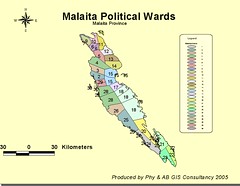 |
 |
| WHAT'S NEW |
- Central Malaita Student Association(CMSA) would include Malaita Outter Islands
student as of next year.That means if you are from Malaita Outter Islands, you are part of CMSA.
- This site is currently undergoing some major changes.
|
| NOTICES |
| I WILL BE AWAY FOR TWO WEEKS IN THE SOLOMONS. WHILE I AM AWAY, N.G, COULD YOU KEEP OUR SITE UPDATED WITH ALL THE LATEST NEWS FROM HOME. I WILL BE BACK ONLINE IN AUGUST - PM |
QUOTE OF THE DAY |
| "Youth is a blunder; Manhood is a struggle; Old age is a regret - (BENJAMIN DISRAELI (1804 - 1881)" |
 BENJAMIN DISRAELI (1804-1881) BENJAMIN DISRAELI (1804-1881) |
| CHAT BOARD |
| KU'AL HU'AN ALA'ANGA!!!.
|
| CLIPS OF THE TSUNAMI IN SOLOMON ISLANDS |
|
|
| HISTORICAL CLIPS OF THE SOLOMONS |
|
| OTHER SOLOMON ISLANDS CLIPS: MUSIC, SPORTS ETC |
|
| POSTERS |
|
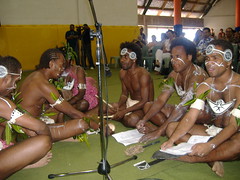
Vakavuku, SISA custom dancers administrator
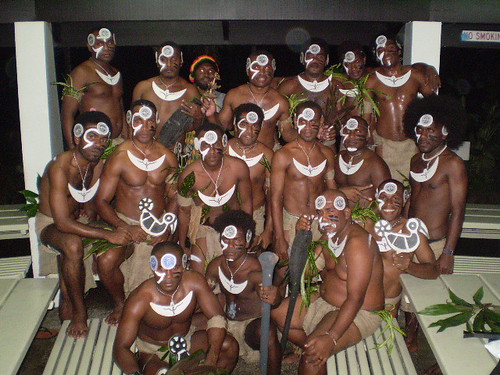
Central Malaita Dancing Group at the Tsunami Appeal at Laucala Campus administrator
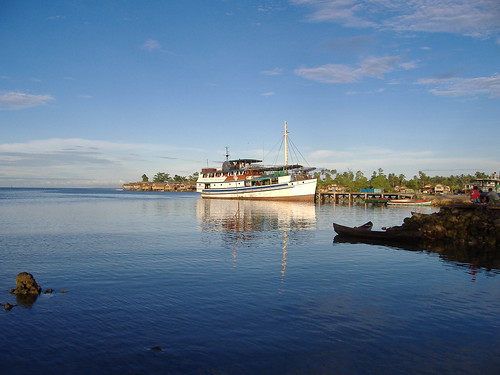
AUKI WHARF administrator
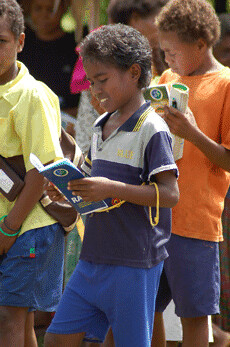
REACHING OUT....A young boy from Kilusakwalo reading through a pamphlet about RAMSIâs work in Solomon Islands which was
distributed during a meeting by a RAMSI Outreach Team to the village yesterday. PICTURE: MOFFAT MAMU administrator

A Malaita Ramo - JanesOceania.com

A house found it self submerged as a result of the Tsunami - Lifhaus.com">
 Jacinta Moli from Central Malaita representing Solomon Islands in Powerlifting during the Commonwealth Games Jacinta Moli from Central Malaita representing Solomon Islands in Powerlifting during the Commonwealth Games
administrator

Tennis Queen Irine George from Central Malaita" ">
|
|
| Wednesday, January 24, 2007 |
| Documentary highlight Aus. participation in Policing in the region aired on SBS Channel |
Elicia MurrayJanuary 22, 2007
On the streets of Melbourne, policeman Patrick Veitch knows his job. In the Solomon Islands capital, Honiara, during last year's volatile election campaign, his role was less clear-cut.
Veitch is one of the Australian Federal Police officers featured in Policing the Pacific, a documentary series screening on SBS. Writer and co-director Alan Erson says Veitch represents all the useful aspects of policing in Australia. Tough, fair and competent, the experienced cop arrives in Honiara as "just a new boy". As he begins to train the local police force, he realises how much he has to learn.
"Patrick's story is our story in a sense," Erson says. "Australia is a regional power but it doesn't have a long tradition or necessarily a sense of righteousness in exercising power in the region. Whether we know it or not, we are powerful and we do have the potential to make things a lot better or a lot worse."
The four-part series follows several AFP officers deployed to different parts of the Solomons and East Timor as part of the Australian Government's efforts to bring peace and stability to the region. About 450 police from the Pacific region make up RAMSI, the Australian-led Regional Assistance Mission to the Solomon Islands, dispatched in 2003 to restore justice to a nation torn apart by civil conflict.
The documentary shows federal officers patrolling the streets of Honiara, as well as rarely policed outer islands and the Weather Coast, where AFP officer Dave Elson is the only Caucasian and fluent English speaker.
He and his police partner, a young female officer from Papua New Guinea, walk a 28-kilometre beat, trying to bring Western-style justice to the traditional "wantok" tribal culture.
"There are rapes and there is also child molesting," Elson says. "Culturally, it's not accepted but it is a way of life, so we are here to try and stop that as well."
Elsewhere, Australian officers investigate killings and police forestry and fishing companies. During the lead-up to the April 2006 election, the officers in Honiara must do their job as the capital descends into lawlessness.
The documentary crew was in East Timor as 200 Australian officers, supported by heavily armed Malaysian police, tried to restore order after the massacre of unarmed East Timorese police. Policing the Pacific follows two AFP officers who walk the streets of Dili for six hours a day, seven days a week. One is Elson, who is posted to East Timor after his Solomons deployment. As post-independence gang violence continues, he averages five arrests a day and tries to convince the locals to call the police when trouble arises, rather than taking
Gritty, real-life stories are Erson's forte. He was writer, director and executive producer of Dust to Dust, an observational documentary series set in a Sydney funeral home, and his latest project is Race for the Beach, a documentary about training Lebanese Muslim lifeguards after the December 2005 Cronulla riots.
Policing the Pacific wasn't an easy shoot to co-ordinate. The production team negotiated for 18 months with the AFP's International Deployment Group before they were allowed to film. Once on the ground, they had to win the trust of the police officers.
"They were really the people with the hardest job and I think they were worried about being seen to be making mistakes," Erson says, adding that he quickly gained a lot of respect for his subject. "They're just cops. They're not the army, who signed up for all of that. They expect a bit of danger but the danger of the Third World is not the danger of Melbourne or Sydney."
Members of the documentary crew also endured difficult conditions. "When Andrew [Merrifield, another director of the series] was shooting on the Weather Coast, he was sleeping rough on the floor of the police station. It wasn't great hardship but it was really humid, it was really hot and it rains like crazy at any time of the day and night."
Then there were the cultural sensitivities. One episode shows officers exhuming bodies to solve murders committed during the Solomons civil war.
"We're the same as the police," Erson says. "Filming a funeral, I don't know what's right to film and what isn't ... You have a general sense of what feels appropriate and what doesn't, but I don't know."
He says it is important for Australians to know about the risks their police face overseas. This is especially true with growing instability in the Pacific, as post-colonial economic problems surface and ethnic tensions escalate.
"In the past, we've sent aid and we've sent soldiers or the navy when required. Now we're sending the police, which is an extraordinary thing to do," Erson says.
"You're sending in ordinary Aussies, with all our strengths and weaknesses, to a place where they don't know exactly what's going on and you're asking them to front up to really tough problems. Their task is huge."
The second episode of Policing the Pacific airs on SBS on Wednesday at 8pm. |
posted by administrator @ 9:08 AM  |
|
|
|
|
NAVIGATIONAL LINKS |
| SCHOLARSHIP SITES AND EMPLOYMENT OPPORTUNITIES |
|
|
| INTERNATIONAL NEWS |
|
|
| LOCAL AND REGIONAL NEWS |
|
|
| OTHER SOLOMON LINKS |
|
|
| SPORTS LINKS |
|
|
| TOK STORI - ALA'ANGA DISCUSSION FORUM |
|
|
| PHOTOS |
|
|
| Regional Bodies |
|
|
| Research Papers and Articles |
|
|
CENTRAL MALAITA STUDENTS |
- 1. ABA, Alan
- 2. ADIFAKA, Margaret
- 3. AFIA, Kabini
- 4. ANII, Dennis
- 5. ANII, Loretta
- 6. ATOA, Betty
- 7. BARE, Gavin
- 8. BATALOFO, Margaret
- 9. BIBIASI, Joseph
- 10. BISAFO, Samson
- 11. BUGA, Benjamin
- 12. BUKA, Glen
- 13. BUNABO, Steven
- 14. ENOCH, Derick
- 15. ETUA, Dennis
- 16. FARADATOLO, David
- 17. FUGUI, Dudley
- 18. GALASAU, Noel
- 19. GERENIU, Collin
- 20. GULIOA, George
- 21. IKA, Silas Phillip
- 22. HUNUEHU, Helen
- 23. IDU, Francis
- 24. KAO, George
- 25. KETEI, Allan
- 26. KINIOU, Aaron
- 27. KWALU, Jerry
- 28. KWATOO, Tony
- 29. LUITOLO, Steven
- 30. MAEKWARE,Tom
- 31. MANATE'E, Wesley
- 32. MANUSALO, Nelly
- 33. MISIBINI, ALick
- 34. MISIBINI, William
- 35. MISITE'E, John
- 36. OTTO, Steven Jude
- 37. RAU, Ishmael
- 38. SALEMANU, Martin
- 39. SIARANI, ANDY
- 40. SUABULU, Gray
- 41. TEGEROBO, Moses
- 42. TOITO'ONA, Joan
- 43. TORILOFA, Frank
- 44. UGULU, Primo
- 45. VAJAH, Jimmy
USP STAFFS AND FRIENDS
- 1. MAE, Paul
- 2. BUTAFA, Emanuel
|
| CURRENCY CONVERTOR |
|
|
| ARCHIVES |
|
|
| Archives |
| GREATEST HITS FROM SOLOMONS ISLANDS (1960s-1980s) |

|


|
|
